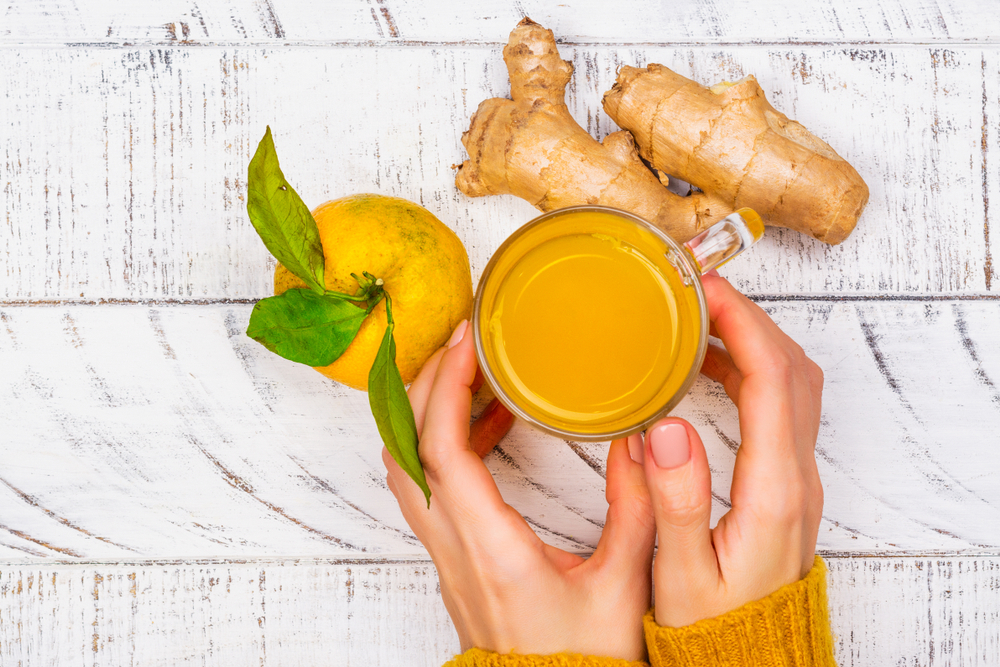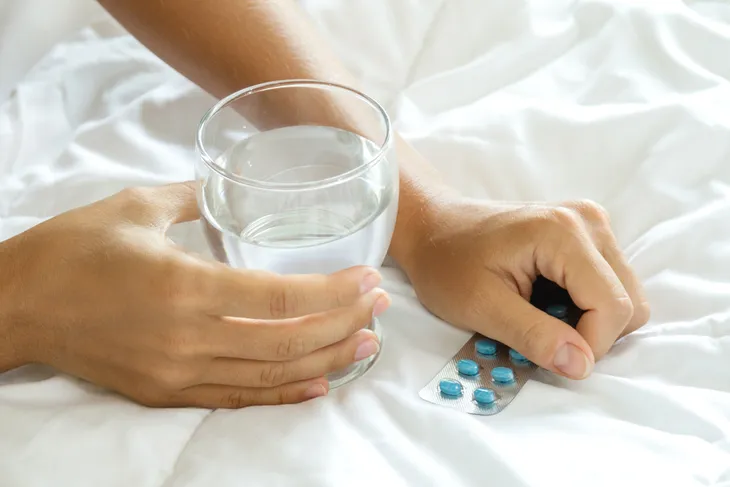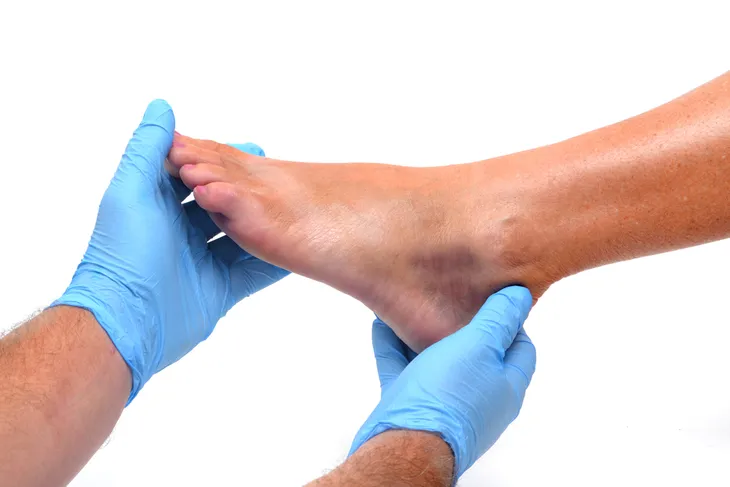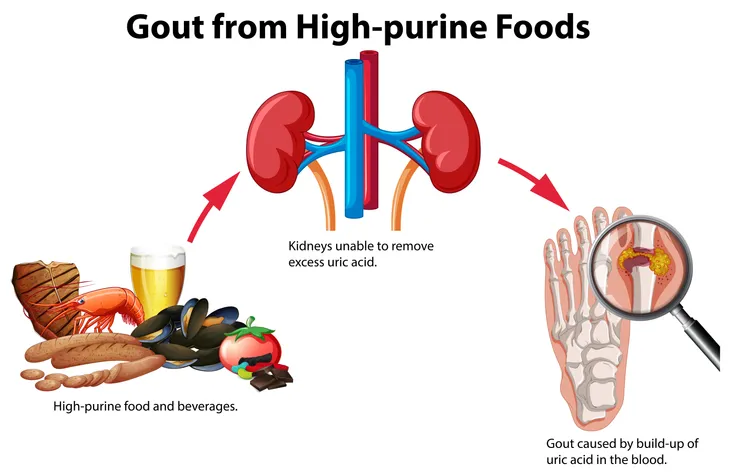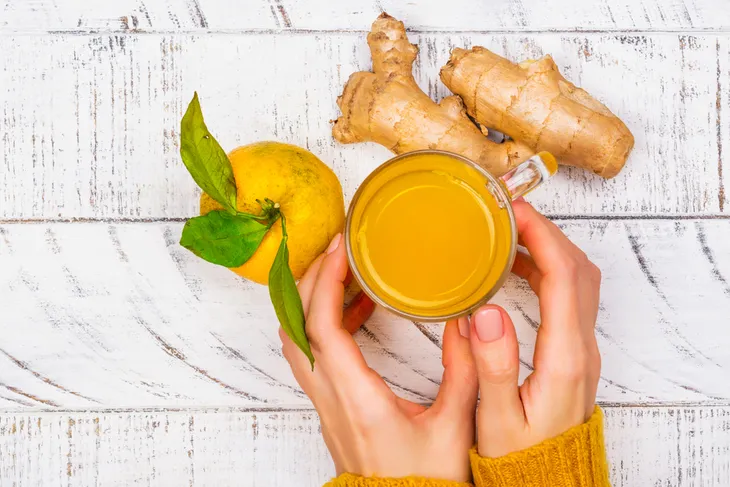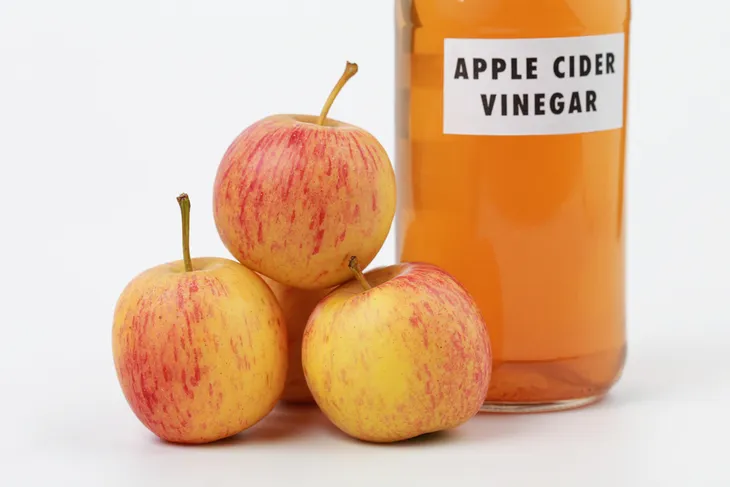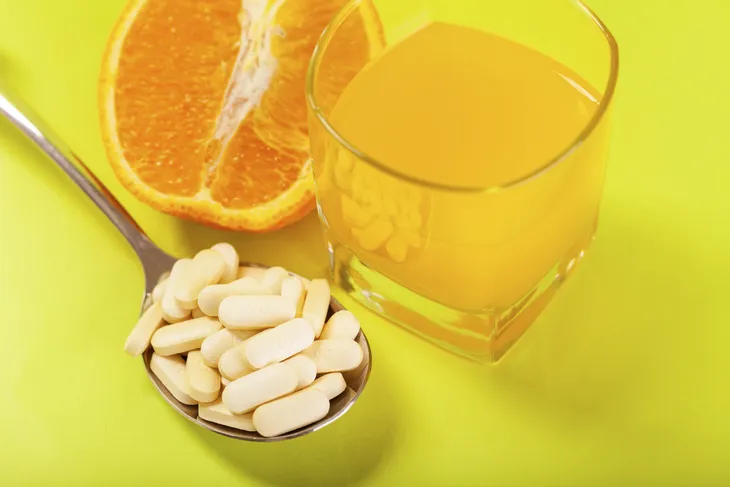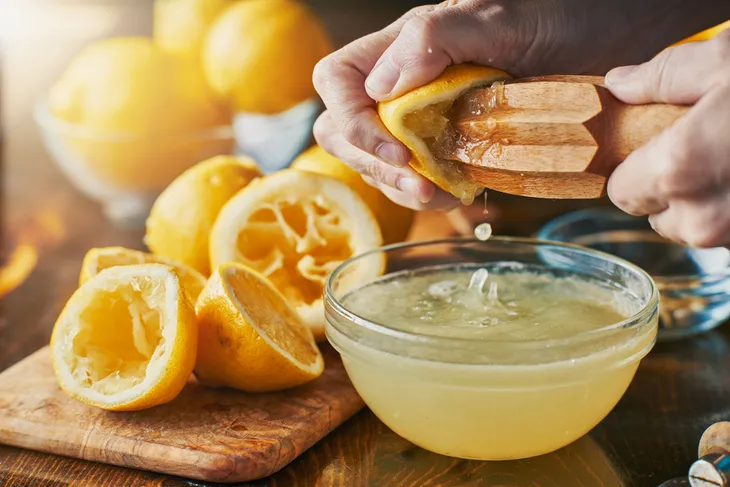A gout attack can be a very painful experience. It happens very suddenly and leaves you debilitated for days. Even the slightest touch can cause extreme pain. People at home will have to be careful moving around you are making sure no object touches the affected joint. The sudden excruciating pain subsides after a few hours but it remains that you’re unable to move freely due to the swollen, inflamed joint. You’re going to need someone to assist you in doing basic things such as getting up from the bed, going to the toilet, making food, etc. It’s not a pretty sight.
Take Your Medicine
Be prepared with a stock of colchicine in your medicine cabinet. After a gout attack, take this medicine right away to reduce the inflammation. Colchicine works best when taken within 12- to 24-hours of a gout attack. You may take this together with over-the-counter NSAIDs like ibuprofen or naproxen.
If you don’t have colchicine, call your doctor immediately so they can prescribe you with colchicine. Next time, you should have colchicine ready, so you don’t need to wait on your doctor. Remember, gout attacks often happen in the middle of the night and show no early signs. It happens right away.
Isolate, Elevate, and Apply Ice
Avoid moving the joint too much and don’t let anyone close to it unless it is to assist you. If possible, you want to keep the affected joint bare as even the weight of any clothing or bedding can cause pain.
Place the affected joint at an elevated position to reduce inflammation. You can do this by resting the joint on top of a pillow, suggests WebMD. After the extreme pain has subsided and it’s not so sensitive to touch anymore, apply ice on the joint. This can help dull the pain and decrease inflammation.
Stay on the Low-Purine Diet
During a gout attack, you want to maintain your low-purine diet. Breaking it now will only prolong the inflammation and increase its chances of coming back.
According to WebMD, avoid foods that are high in purines, such as seafood, organ meats like liver, and fatty foods. All of these foods can raise uric acid in the blood. You should also avoid fructose-sweetened drinks and alcohol — particularly beer.
Drink Lots of Water
Drinking water is always important, but it’s especially important during a gout attack. I recommend having water handy at all times, especially at your bedside because a gout attack can happen at any time, even during the middle of the night.
The recommended amount of water is 8-glasses a day but aim for 12. This will help dilute the uric acid in your blood, says Arthritis-health. Drinking lots of water will also prompt you to go to the bathroom more often which helps flush out excess uric acid.
Take Ginger or Turmeric
A way to increase your liquid intake is by drinking ginger or turmeric tea. These two contain powerful anti-inflammatory properties that help with gout. Boil water and add ginger to it or sprinkle some turmeric. You may also incorporate these two ingredients into your meals. If you can stomach it, eat a small piece of ginger daily.
Ginger can also be applied topically. Throw it in a food processor to make a paste and apply it on the affected joint. Let it sit there for 30-minutes before rinsing.
ACV Drink or Soak
Apple cider vinegar is known to alkalize the body. A gout attack can indicate that there is a lot of acid in the body. To help remedy this, gout sufferers can drink a glass of water mixed with 2-tablespoons of raw, unfiltered, organic apple cider vinegar. Aim to do this three times a day.
ACV can also be used topically. Simply add 1-cup of water for every 4-cups of hot water placed in a bucket. Soak the affected joint for 30-minutes. If it’s difficult to do a soak, simply soak a cloth in apple cider vinegar and wrap it around the affected joint. Let it sit.
Baking Soda Drink
Just like apple cider vinegar, baking soda is known to help the body become more alkaline. During a gout attack, another drink you can take is a glass of water mixed with half a teaspoon of baking soda. Do this several times during the day or until you have used at least 3-teaspoons of baking soda.
When doing the baking soda remedy, you’ll want to limit salty foods as baking soda is already high in sodium. If you have high blood pressure, consider skipping this remedy.
Take Vitamin C
Vitamin C is a very helpful supplement for gout because it helps lower the uric acid level in your bed. In addition to the medication you’re taking, you should take vitamin C. You can take it in supplement form or eat lots of foods rich in vitamin C such as citrus fruits and cherries.
Take a Cherry Supplement
Speaking of cherries, a cherry supplement can be another perfect complement to your medicine. It’s also high in vitamin C and antioxidants which help fight inflammation. Take a cherry supplement; but if you don’t have it, a bowl of cherries will do. Opt for sweet or sour cherries and aim to eat a dozen cherries per day. This will help with the pain and prevent it from coming back.
Drink Lemon Juice
Drinking lemon juice is a good way to consume vitamin C. Not only that, lemon is known to alkalize in the body, helping to reduce uric acid. You can drink lemon juice by itself or mix it together with baking soda.
Stay in Bed and Call Your Doctor
The best place to be during a gout attack is in your bed. You may take all the remedies we mentioned above, but the best thing you can do is rest. Talk to your doctor and let him or her know that you are having a gout attack. Ask about treatments before you take any new supplements or medication. Your doctor will be able to guide you through specific treatments for your situation.
The pain will subside in a few days and you should be able to move again. You may need to use a cane or crutch a few days after recovering from a gout attack.
